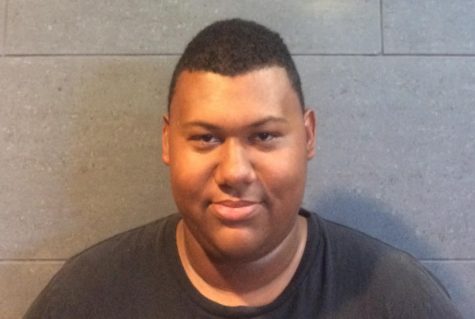Networks lie about being Progressive, instead they claim character development
March 19, 2016
This month the show “The 100,” killed off the character Alexa. She was one of the few characters on television that was gay. When the character was killed off the network claimed character development, but many people saw through the lie. It wasn’t character development, but a lack of being progressive.
“It’s so unfair that the character [Alexa] died because there is a definite lack of representation of the LGBTQ community in television,” said Sophie Corwin, a theatre major at SUNY Buffalo State.
To make matters worse–Corwin is right. Television isn’t as progressive or controversial as it once was.
Television appears to make strides, but could it just be smoke and mirrors? Has television lied to us while people weren’t looking? When trying to be supportive, are progressive networks still stuck in the past? I can’t help but wonder.
When it comes to the representation of the LGBTQ community, are progressive television networks actually being regressive?
Many shows have tried to show the LGBTQ community in a positive light, and while some have succeeded others have failed.
One example is the show “Ugly Betty,” which was on ABC from 2006 to 2010. While the show “Ugly Betty” didn’t focus on homosexuality directly, it demonstrated it through one of the alternate storylines aside from the main character.
This show made strides in demonstrating the challenges of being LGBTQ through the characters of Marc, and Justin.
Justin was a young boy who the audience identified as gay during his first scene in the pilot, but it wasn’t until the fourth season that he got a boyfriend.
Marc on the other hand was comfortable with his sexuality, in the episode “Don’t Ask, Don’t Tell,” Marc told his mother that he’s gay.
Some LGBTQ characters are making strides to inform the world about being a member of the LGBTQ community. The best example of this comes from the ABC hit show “Modern Family.”
The characters Mitchell and Cameron Pritchett are two men that are married and have an adopted child from Vietnam, named Lily.
Sure, “Modern Family” has shown many aspects of being gay, but none so much as the show, “Ellen.”
For five seasons, the show “Ellen,” which was originally titled “These Friends of Mine,” is known for “The Puppy Episode” of season four. This episode showcases the main character Ellen Morgan, and how she comes out of the closet, telling people that she’s gay.
The series was cancelled after one more season, mainly because of the character’s sexuality.
“Ellen” reached a critical plateau and made great strides in displaying what it’s like to be gay. It showed Ellen’s coming out to her friends and family, which is part of the hardships of being gay.
All in all, the show had a great run but it’s a disappointment that it was cancelled so prematurely.
In the 1990’s homosexuality was a big deal, and it came to a large controversial point when the television show, “Will and Grace,” debuted on NBC. “Will and Grace” is about the adventures of gay lawyer, Will Truman, and straight interior decorator, Grace Adler.
The show ran for eight seasons, ending without heartbreak for any of the gay leads, which is unusual for many television shows and films related to the LGBTQ community.
“The ‘bury your gays’ trope actually originated with the relaxing of film censorship codes in the late 1950’s, which allowed depictions of homosexuality, but only within a ‘proper moral context.’ By illustrating that homosexuality is immoral, and anti-social, and that punishing gay characters with death, depression, illness, etc. was the simplest, and most effective way of providing that illustration,” said Reyton, a Tumblr user.
Reyton’s post matches many of the ways LGBTQ characters in television, and film are portrayed. The best example of this can be shown through many films in the past, present, and future.
“The focus is on representation. There is a disconnect between people, and representation. In the end it becomes a label. If you can’t identify with a white male you’re screwed,” said Emily King, an Erie Community College student.
King has proven a point through the number of television shows that display LGBTQ leads, or just secondary characters.
Alexa from “The 100” demonstrates how television does this, and then tries to cover it with outlandish claims such as character development. This shouldn’t be happening, especially in times where many people now view homosexuality as a person’s choice, and not as some abomination.
Sure television can try to represent the LGBTQ community, but they’re not really doing anything about it. Many shows are just suddenly breaking themselves free of the censorship law form the 1950’s, and adjusting to writing a non-sad ending for the character.
It may take a few months, or a few years, but the television and film industry is on its way to changing for the better.
Now, if only we could get a black person to be nominated or even win an Academy Award.
email: viera.record@outlook.com



